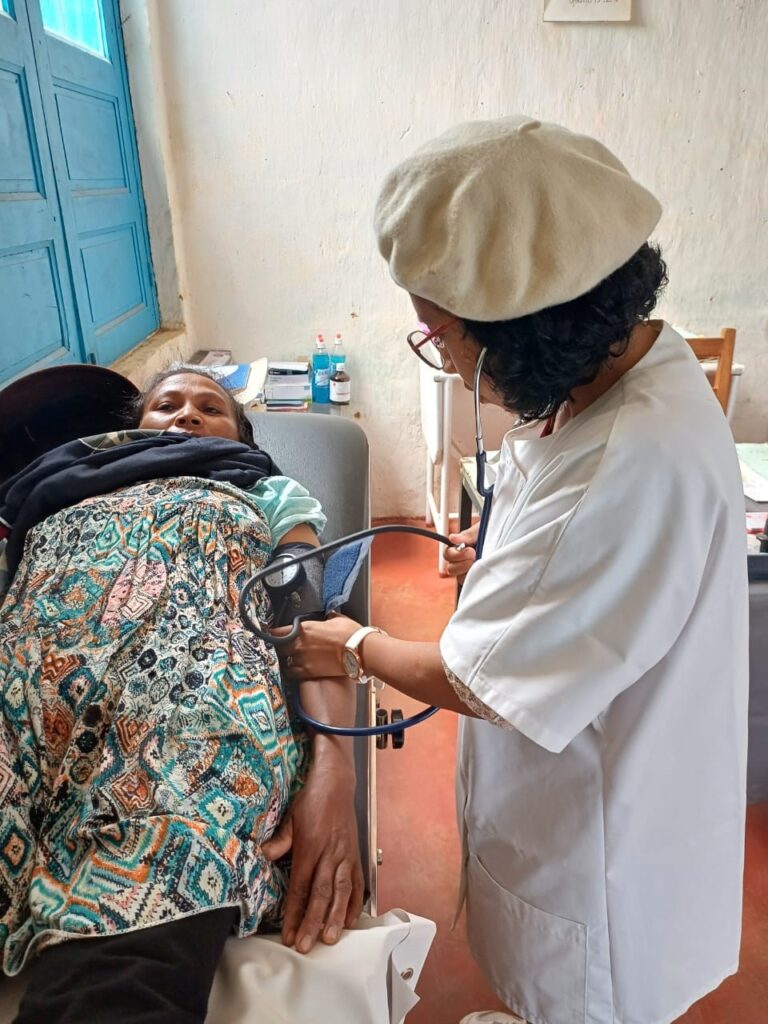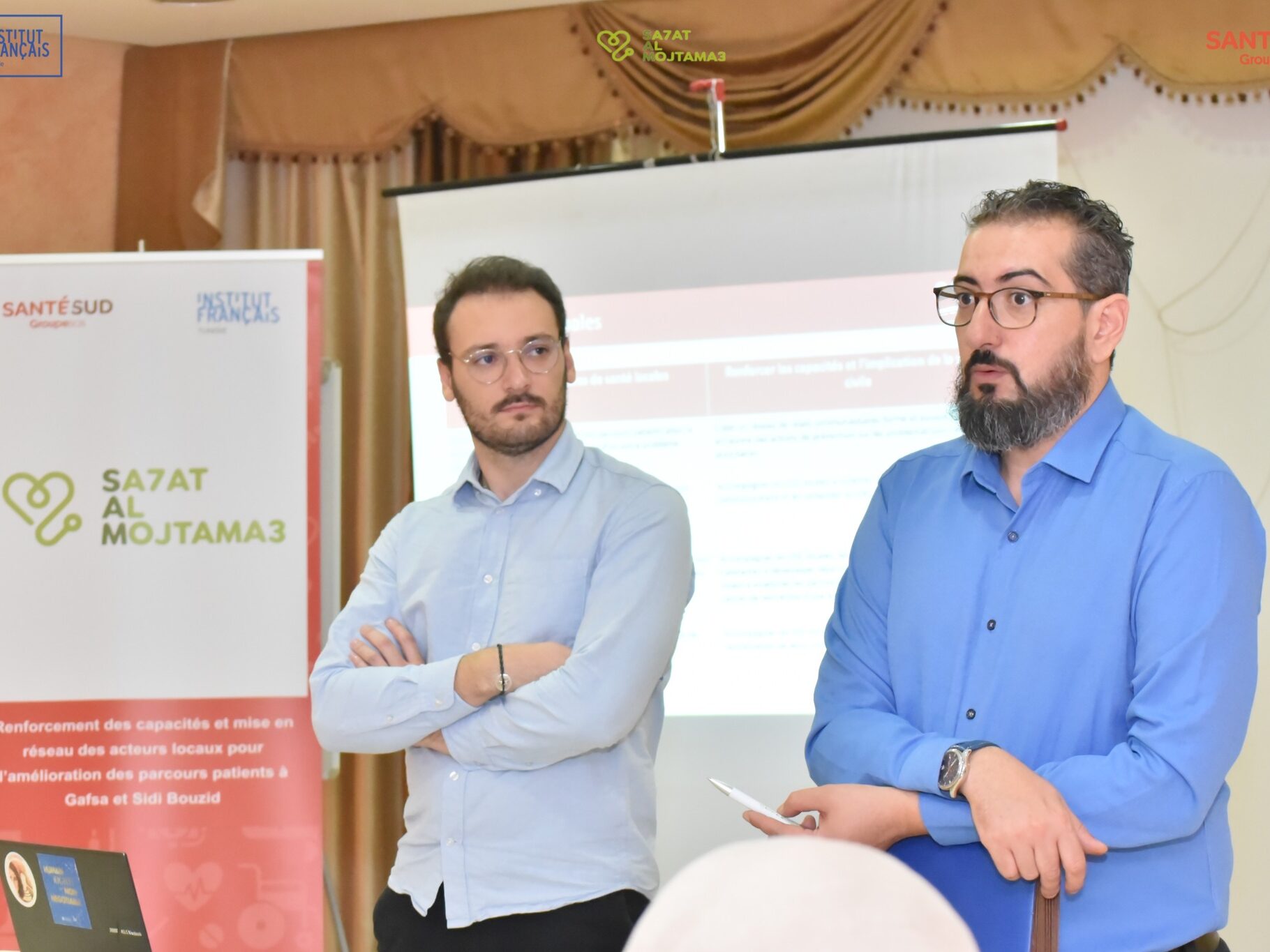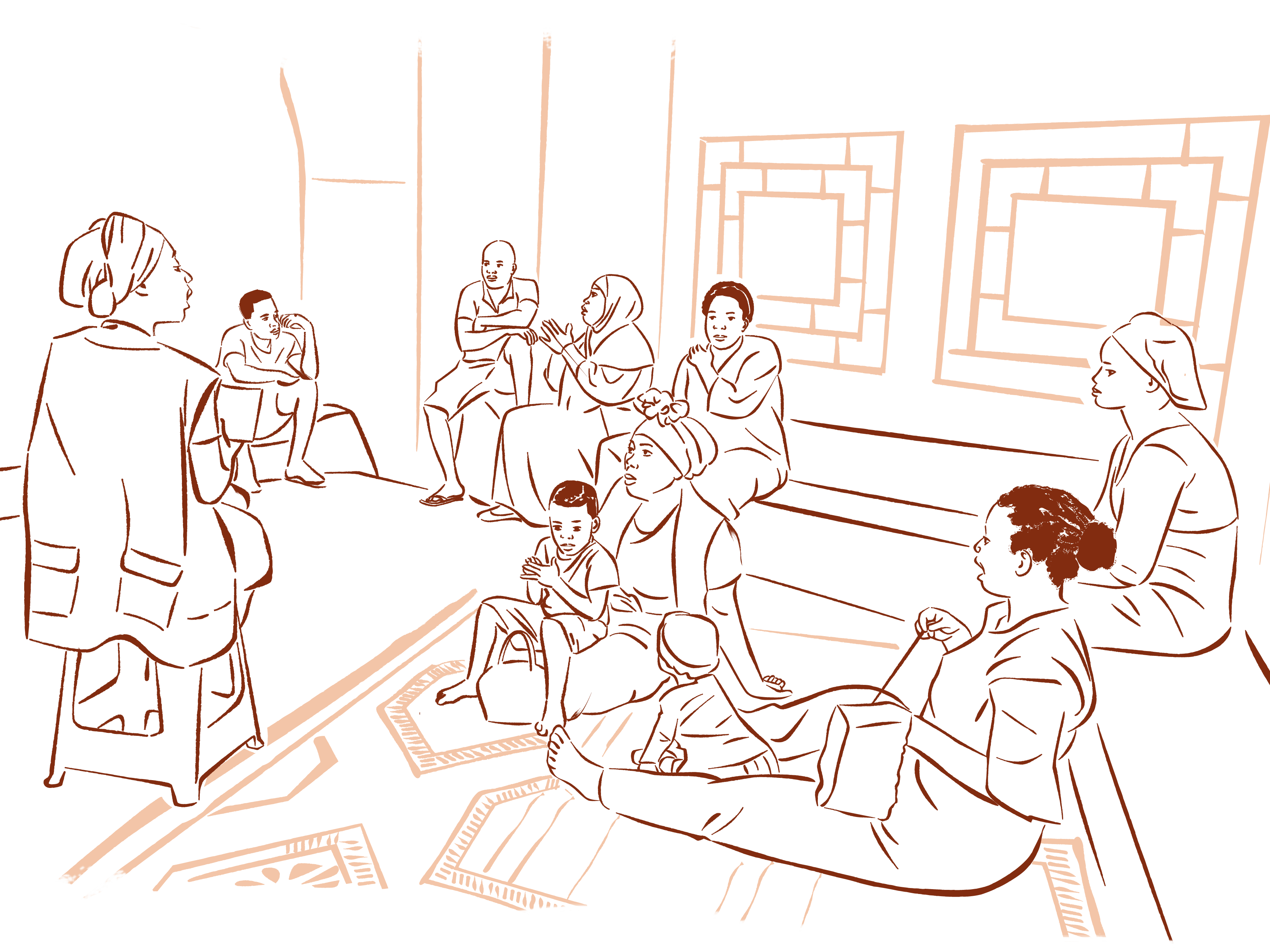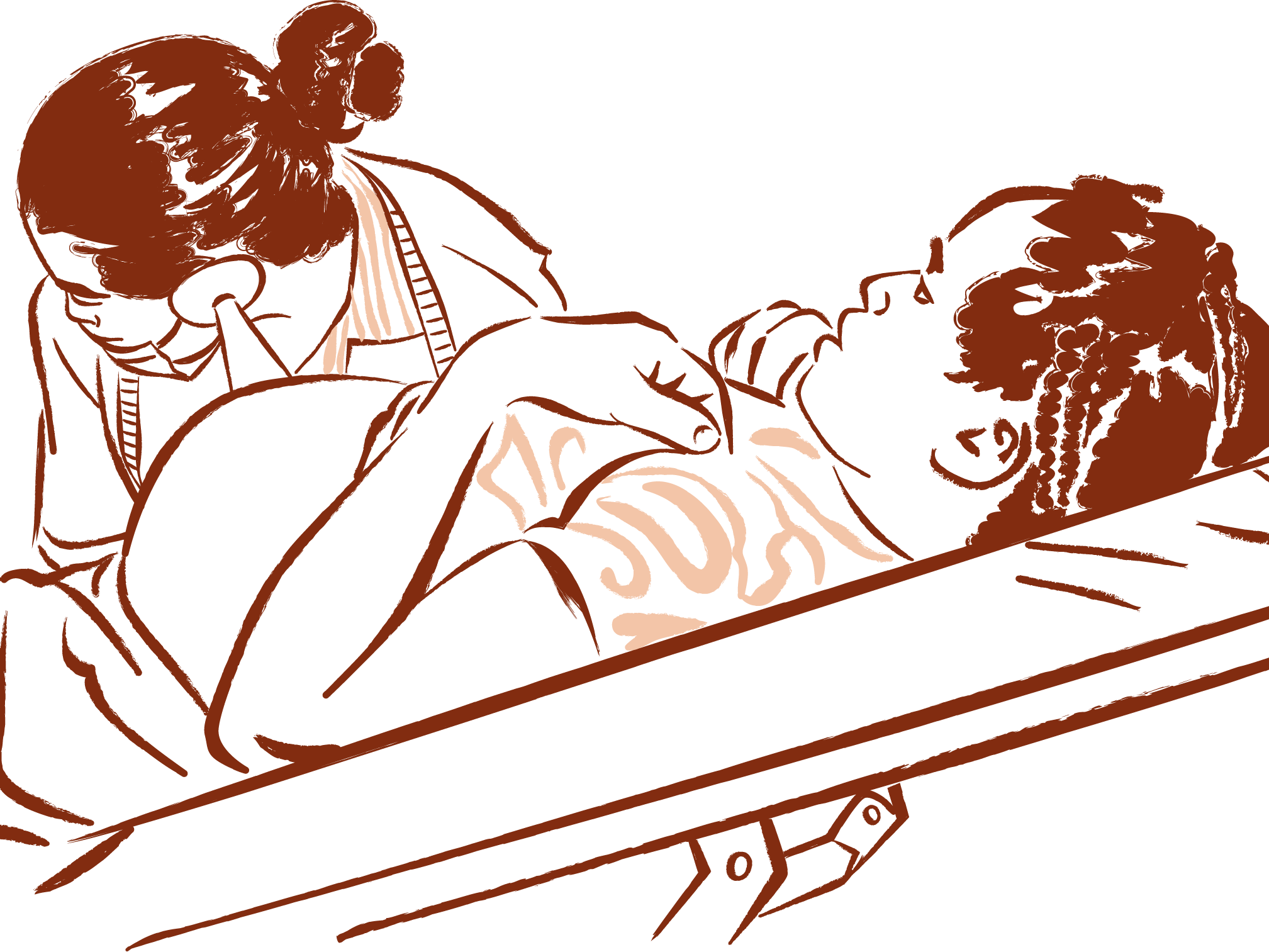News
Interview with Dr Mirana RAKOTOMALALA, general practitioner in Madagascar
Following the emergency medicine training organized by Santé Sud, we had the opportunity to interview Dr. RAKOTOMALALA Hasina Mirana Jacintha, a general practitioner in an isolated rural area. This interview was an opportunity to look back on her inspiring career, the challenges she faces in her daily practice, and the significant impact this training has had on her skills and ability to manage emergency situations. Her testimony highlights the importance of such training for healthcare professionals working in countries with limited resources.
Could you introduce yourself and tell us a little about your background?
My name is Dr RAKOTOMALALA Hasina Mirana Jacintha. I qualified as a general practitioner in 2018. I worked in private practice for 3 years and, in 2021, I was recruited by the PARN project, a World Bank project. I worked in the Centre de Santé de Base Niveau 2 in rural areas, at CSB2 Merikanjaka, which is in the extreme south of the Manjakandriana district, 80 km from Tananarive and 40 km from Manjakandriana.

What were the main difficulties you encountered working in isolated rural areas?
During my medical practice in isolated rural areas, I had to face some major challenges. Firstly, limited resources due to the lack of medicines and equipment; I therefore learned to make do with the means available in the center to care for and treat patients. I found it very difficult to manage patients’ illnesses with limited resources, especially in life-threatening emergencies. In addition, there were the socio-cultural challenges: being a woman, everyone thought I was a midwife and not a doctor. So I had to work on my image as a doctor, so that people wouldn’t be reluctant to consult me when they were ill.
One of my memorable experiences at the Centre de Santé de Base 2 (CSB2) Merikanjaka was when, two months after my arrival there, a man arrived in a state of distributive shock (anaphylactic shock). I took charge of the patient, despite the presence of traditional healers who also suggested their care. I insisted on doing my job. These experiences have enriched not only my professional life but also my personal life, making me adaptable to any situation and strengthening my ties with the community.
You recently completed a training course in emergency medicine. Can you tell us more about this opportunity and its importance for you?
As I work in the southernmost part of the Manjakandriana district, I was nominated to take the emergency medicine training offered by Santé Sud, and I see this opportunity as the start of my ongoing learning to acquire new skills.
Training in emergency medicine in countries with limited resources is divided into three parts: the online course presented by Dr Etienne KRAS with 10 different modules on the UNFSM website, practical training given by Dr Etienne, Dr Elodie and professors from the Antananarivo Faculty of Medicine, and finally the practical internship in hospitals.
During our classroom training, we learned a great deal about the management of vital distress, suturing techniques and the application of plaster immobilization in the event of trauma. Practical training enriched our skills, and we were able to progress thanks to the many techniques taught by our masters from Santé Sud and the Antananarivo Faculty of Medicine.
Training in emergency medicine is crucial for dealing with critical situations and saving lives. It enables us to acquire new skills and makes us better equipped to deal with emergencies. For me, training in emergency medicine in countries with limited resources is a great professional opportunity. I therefore encourage other doctors working in rural areas to take this training too, to keep up to date with medical practices and save many lives.
Find out more

Testimony of Tarek GRIRA, Project Manager of the Sa7et Al Mojtama3 programme

Petite Terre
